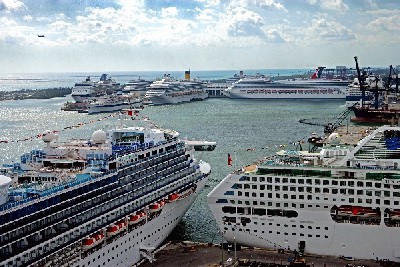Growth with Equity, the Priority in the Post-pandemic Agenda for Latin America and the Caribbean
by Carlos Felipe Jaramillo

[WASHINGTON, DC] – The pandemic has hit the Latin American and Caribbean region hard. Economies contracted more in 2020 than at any other time in over a century. For 2021, we expect a partial recovery that will bring hope.
Nevertheless, the best way out of this crisis would be one in which the region can overcome the low growth that persisted before the pandemic, and that allows it to enter a path of greater development with equity and sustainability. For this to happen, Latin American countries must undertake actions and reforms aligned with that purpose.
Last year, the Covid-19 crisis triggered an increase in poverty. The middle class became smaller in nearly every country. Most countries increased public spending to mitigate the impact of the pandemic, but the scope of these efforts failed to prevent large numbers of families from falling into poverty. The pandemic hit the most vulnerable hardest, which is reflected in rising inequality.
Poverty Rate Increasing
The situation remains fragile. The regional poverty rate stands at 21.8 percent, but it could rise higher in 2021 if social protection policies are not sustained at current levels – a huge budgetary challenge in the midst of the crisis – and if economic growth does not accelerate.
An unprecedented crisis like the current one requires an extraordinary response. Since the onset of the pandemic, countries have mobilized massive human and economic resources to respond to the emergency. Debt service was suspended for the poorest countries, and funds were created for vaccine procurement and distribution.
World Bank Disbursement
In this context, the World Bank disbursed US$ 14.8 billion to support the public sector in the countries of the region. These resources were allocated to assisting the emergency response and bolstering economies for their speedy recovery.
All of this assistance was vital for dealing with a difficult, and for many, painful situation. But now we must look to the future. If the region wants to achieve rapid, equitable growth, providing opportunities for all, it must get to work. How? To foster development, there are necessary – and urgent – reforms in three key areas:
- First, productivity and job creation need a strong impetus. A dynamic private sector in an investment-friendly business environment, and that is integrated into global value chains, can quickly create job opportunities and avenues for advancement for many. The international context, driven by the growth of demand in the United States and China, is once again favorable and should be taken advantage of.
- It will also be crucial to promote human capital accumulation. This means improving healthcare systems, which have currently reached their capacity, and enhancing education quality. A special effort will be required to recover the learning lost during the crisis. Streamlined plans for vocational training and job placement that include training in digital skills are also needed.
- Lastly, the recovery must include an agenda for sustainable growth that addresses the problem of climate change as well as the need to take advantage of and protect the region’s wealth of natural resources. Here it is important to invest in renewable energy and rethink fossil fuel subsidies.
Digital Economy Growth
A fourth component, whose disruptive power runs through -and strengthens- this entire growth agenda: digital development. The pandemic dramatically accelerated its positive impact. We see it in the digital economy and trade and service platforms; in teleworking and remote access to education and healthcare; in financial inclusion, transparency and improved access to public services. The transformative power of digital development is just emerging. However, it is necessary to accelerate these changes and ensure universal internet access so that everyone can take advantage of its benefits. This is going to require significant investments in connectivity infrastructure, as well as adequate regulations to promote it.
The region has experienced a difficult period. The pandemic has exacerbated some of the enduring ills of the past, such as poverty and inequality. But difficulties always bring a call to action. It is time to start building better.
Carlos Felipe Jaramillo is the World Bank Vice President for the Latin America and the Caribbean





